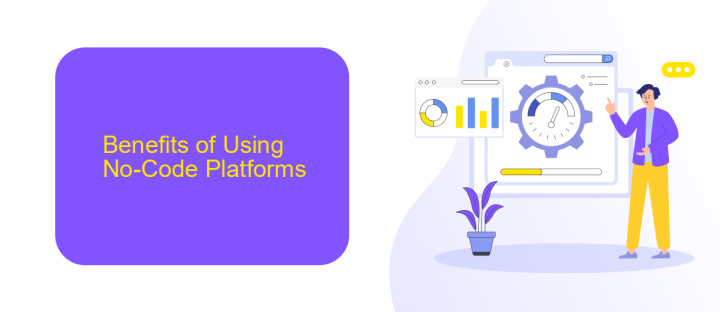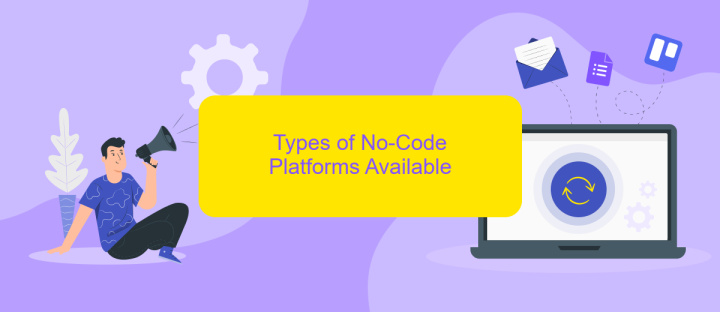No-Code Web
In today's fast-paced digital world, creating a website no longer requires extensive coding knowledge. No-code web development platforms empower individuals and businesses to build professional, functional websites with ease. These tools democratize web design, making it accessible to everyone, regardless of technical expertise. Discover how no-code solutions are revolutionizing the way we approach web development and opening up new possibilities for innovation.
Introduction to No-Code Web Development
No-code web development is revolutionizing the way websites and applications are built. By eliminating the need for traditional coding skills, it empowers individuals and small businesses to create professional, functional web solutions quickly and efficiently.
- Drag-and-drop interfaces for easy design
- Pre-built templates and modules
- Integration with third-party services
- Automated workflows and processes
One of the key advantages of no-code platforms is their ability to integrate seamlessly with various tools and services. For instance, ApiX-Drive allows users to automate workflows by connecting different apps without any coding knowledge. This not only saves time but also enhances productivity, making no-code web development an attractive option for many.
Benefits of Using No-Code Platforms

No-code platforms offer numerous benefits that make web development accessible to a broader audience. One of the primary advantages is the significant reduction in development time. Traditional coding can take weeks or even months, but with no-code tools, you can create functional websites and applications in a matter of hours or days. This efficiency allows businesses to quickly adapt to market changes and launch new products faster than their competitors.
Another major benefit is the cost savings. Hiring skilled developers can be expensive, but no-code platforms enable individuals without technical expertise to build and maintain their own projects. This democratization of web development not only reduces expenses but also fosters innovation by allowing more people to bring their ideas to life. Moreover, platforms like ApiX-Drive simplify the integration of various services, making it easier to automate workflows and enhance functionality without the need for complex coding. This streamlines operations and further reduces the need for specialized technical staff.
Types of No-Code Platforms Available

No-code platforms have revolutionized the way we build and deploy web applications by eliminating the need for traditional coding skills. These platforms cater to a wide range of users, from entrepreneurs to professional developers, streamlining the development process and reducing time to market.
- Website Builders: Tools like Wix, Squarespace, and Webflow allow users to create stunning websites using drag-and-drop interfaces.
- Application Builders: Platforms such as Adalo, Bubble, and Glide enable the creation of complex web and mobile applications without writing code.
- Automation Tools: Services like Zapier and ApiX-Drive facilitate seamless integration between different applications, automating workflows and enhancing productivity.
- eCommerce Platforms: Shopify and BigCommerce help users set up and manage online stores with ease, providing built-in tools for payment processing, inventory management, and more.
These no-code platforms empower individuals and businesses to bring their digital ideas to life quickly and efficiently. By leveraging these tools, users can focus on innovation and user experience, rather than getting bogged down by technical complexities.
How to Choose the Right No-Code Platform

Choosing the right no-code platform can be a game-changer for your web development needs. The first step is to identify your specific requirements. Are you looking to create a simple blog, an e-commerce site, or a complex web application? Understanding your project's scope will help you narrow down the options.
Next, consider the ease of use and learning curve of the platform. Some no-code tools are incredibly user-friendly with drag-and-drop interfaces, while others may require a bit more technical know-how. Evaluate the platform's documentation, tutorials, and community support to ensure you can get up to speed quickly.
- Features and functionalities: Does the platform offer the tools you need?
- Customization: How flexible is the platform in terms of design and functionality?
- Integration: Can it easily integrate with other tools and services, like ApiX-Drive for automating workflows?
- Cost: Is the platform within your budget?
Finally, take advantage of free trials or demo versions to test out the platforms you're considering. This hands-on experience will give you a better understanding of how well each tool fits your needs and workflow. By carefully evaluating these factors, you can select the no-code platform that best aligns with your goals.
Best Practices for No-Code Web Development
When embarking on no-code web development, it's crucial to start with a clear plan. Define your goals and map out the user journey before diving into tools and platforms. This ensures that your project remains focused and meets user needs. Additionally, choose a platform that aligns with your project requirements, whether it's for e-commerce, blogging, or custom applications. Platforms like Webflow or Bubble offer diverse functionalities suited for various needs.
Integrating third-party services can enhance your no-code project significantly. Tools like ApiX-Drive simplify this process, allowing seamless integration with multiple services without writing a single line of code. Regularly test your integrations to ensure they function correctly and provide a smooth user experience. Finally, keep your design simple and user-friendly. Overcomplicating the interface can confuse users and detract from the overall experience. Consistent testing and feedback loops are essential to refine and improve your no-code web project continually.
FAQ
What is No-Code Web Development?
Who can benefit from No-Code Web Development?
How secure are No-Code platforms?
Can I integrate third-party services with my No-Code website?
Are No-Code websites scalable?
Apix-Drive is a universal tool that will quickly streamline any workflow, freeing you from routine and possible financial losses. Try ApiX-Drive in action and see how useful it is for you personally. In the meantime, when you are setting up connections between systems, think about where you are investing your free time, because now you will have much more of it.

